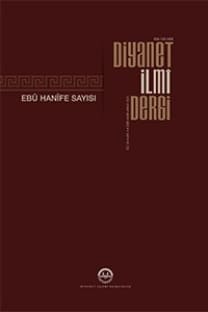Tevbe 6. Ayeti Bağlamında Kur’an Hoşgörüsü ve
Kur’an’da vurgulanan ve etkili biçimde yinelenen ilkelerin başında ‘tevhîd’ ilkesi gelmektedir: Zatı ve sıfatları bakımından tek (ehad, vâhid) gerçek Tanrı olan Allah’a teslim olmayı telkin eden bu başat ilke, Ahiretteki necat kadar, dünyadaki kurtuluş, esenlik ve nizamı da, tevhit akidesine samimiyetle bağlanmakta görür (muhlisîne lehu’d-dîn). Buna karşın Kur’an, bütün eylemlerin merkezine olduğu gibi, ‘iman’ jesti ve eyleminin odağına da isteyerek kabul, ihtiyar ve tercihi; kısaca, özgür iradeyle seçme ve iştiraki yerleştirerek, korku (ikrâh) ya da beklentiye dayalı, ruhi ve içsel gerçeklikten yoksun, samimiyetsiz iman bağlanışını (nifak, riyâ) reddeder. Ve en önemlisi, sosyal, ailevi ya da rasyonel bir nedenle ‘iman’ dönüşümü ve inşasını benimseyememiş; bu yüzden, herhangi bir inanış üzere kalmayı seçmiş kimseleri de, Kur’an’ın hedeflediği evrensel barış ve ahenk düzenini bozmadıkları, tehdit etmedikleri sürece, himaye ve gözetimine almış, onu ‘öteki bir değer’ olarak içselleştirmiştir... İşte bu makale, “Kur’an hoşgörüsü ve çoğulculuk paradigması” diye adlandı- rabileceğimiz bu kurucu ilkeyi, Tevbe 6 ayeti bağlamında ele alacaktır.
The Qur’anic Tolerance and Paradigm of Religious Pluralism
in the Context of the Verse Tawbah, 6
Tawhid is the primary principle which emphasized and repeated in the Qur’an. This primary principle, which suggests be lieving in Allah who is only real God in terms of His self and character, sees the salvation, soundness and tranquility in this world as well as in the hereafter to believe intimately in tawhid. On the other hand, the Qur’an as for all actions puts willing acceptance, choosing and preferring, in short freewill into the center of faith. It refuses insincere faith which is based on fear or expectation, and deprived of spiritual and essential reality. Above all, tawhid protects people, who can’t adopt conversion and construction of faith because of social, familial, and rational reasons, and who choose to believe in any belief, as long as they do not disturb universal peace and order which intended to secure by the Qur’an. Tawhid interiorizes these persons as ‘the other value’. This paper discusses this founding principle which we can entitled as “Qur’anic Toleration and Paradigm of Pluralism” in the context of Verse 6 of Surah Tawbah.
